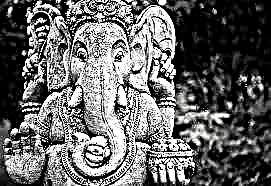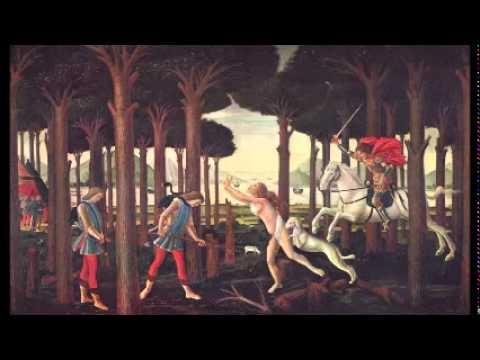Some argued that upbringing not only develops, but also creates the character of a person, together with a special mind and talents; that Alexander the Great would in other circumstances become a peace-loving Brahmin, Euclid - the author of sensitive novels, Attila - a gentle shepherd, and Peter the Great - an ordinary person! No! One nature creates and gives; parenting only forms.
Indifferent people are prudent in everything; they do less harm and less upset the harmony of society; but only the sensitive make great sacrifices of virtue, surprise the world with great deeds. Only they shine with talents of imagination and creative mind: poetry and eloquence are their talent. Cold people can only be mathematicians, geographers, naturalists, antiquaries, and - if you like - philosophers!
Here is the story of two people, which in their faces represents these two characters. Erast and Leonid studied in the same boarding house and became friends early. In the first since infancy, a rare sensitivity was revealed; the second seemed prudent.Erast, from excessive self-confidence, put off any business until the last minute, sometimes not teaching a lesson; Leonid always knew him well in advance.
Their mutual friendship surprised: they were so different characters! But their friendship was based on the very difference in properties. Erast had a need for prudence, Leonid - for liveliness of thoughts. Erast was captivated by novels and poetry as a child, and in history he most of all loved examples of heroism and generosity. Leonid did not understand how to deal with fables, that is, novels! The poem seemed to him a useless game of the mind. He read the story with great diligence, but as a grammar, only to know it. Erast believed everything extraordinary in history; Leonid doubted everything that was not in accordance with the ordinary order of things.
And the actions of friends were different. One night, the house where they studied and lived caught fire. Erast jumped out of bed naked, woke Leonid and the others, put out the fire, saved the precious things of his professor and did not think about his own. The house burned down, and Erast, hugging a friend, said: “I have lost everything; but in general calamities it’s good to forget oneself ... ”-“ It’s very bad, ”said Leonid,“ a person is created to think first of himself, then of others. ” I corrected your recklessness and saved our chests and books. ” So Leonid acted and thought in the sixteenth year of life.
Another time they walked along the riverbank, before their eyes a boy fell from a bridge. Erast gasped and rushed into the water. Leonid did not lose his head, ran to the fishermen nearby, threw them a ruble, and after five minutes they pulled out the sinking Erast and the boy.
Having finished the boarding house, they went to the army. Erast said: “One must seek glory”; Leonid said: "Duty tells us to serve the nobleman! ..". The first rushed into danger, the other went where they sent him. Erast, from excessive passion, was soon captured; Leonid earned the name of a prudent officer and the cross of George.
After the war, both switched to civil service. Leonid took a difficult and invisible place; Erast entered the office of the noble nobleman, hoping with talents to earn his attention and play a great role in the state. But the success of ambition requires flexibility, constancy, coldness, patience. Erast was not afraid to object to the minister, he was afraid only to humiliate himself before him. Leonid instructed him: "No talents will exalt a person without pleasing people."
Soon Erast began to get bored of tedious activities. He was young, handsome, smart and rich. Women loved him, men envied him. He did not devote the evening to work, finding that the smile of a lovely woman was more pleasant than the minister's approval. He became careless, although he promised himself to improve. The Minister lost his patience and broke up with Erast.
Erast indulged in a tender passion ... Brilliant young people often come into contact with women windy: they save them from difficult searches.
Erast got married. Nina, his wife, was sweet and beautiful, but the thought that his fate was decided forever confused Erast. Leonid visited a friend. However, having lived a little, he suddenly left. Erast was amazed and hastened to his wife. Nina, shedding tears, wrote and wanted to hide the papers. Erast pulled out a letter.It turned out that Nina adored Leonid, but he did not want to change friendship. Nina conjured him to return or threatened to poison herself with poison ... Seeing the remorse of his wife, Erast forgave her; but not all acquaintances, like Leonid, fled from the charms of Nina. Erast divorced.
Erast decided to be an author. The sensitive heart is a rich source of ideas, and Erast recognized fame. But glory is beneficial for the light, and not for those who gain it. The echidic envy soon hissed: strangers turned pale and suffered from his copyrighted successes. Leonid reassured his friend, and at the end of the letter he added that he was getting married soon: "A woman is needed for order in the house." Erast hurried to a friend's wedding. They have not seen each other for a long time. Leonid, despite the diligence of a business person, bloomed with health; Erast, once a handsome young man, was pale and dried like a skeleton.
Erast lived in a friend's house; he liked to sit by the fireplace and read Calliste's French novels. Sometimes they cried together like children, and soon their souls got used to it in an amazing way. But cold people are not blind, and one morning, taking his wife, Leonid left with her, writing that he had been entrusted with an important business a thousand miles from here.
Erast went to travel, but nothing occupied him anymore. Returning to the fatherland, he wrote to a friend. Leonid, already a noble man in the state, was delighted with him sincerely and introduced his second wife. Callistas was no longer in the world. Erast learned that she loved him passionately. Now every day he went to pour tears over her grave.
He soon fell ill, but still managed to give half of his fortune to Nina, knowing that she was in need.He died in her arms. Leonid did not go to the patient: doctors declared the disease "contagious." He was not even at the burial, saying: "A soulless corpse is not my friend! ..".
Leonid lived to a very old age, enjoying nobility, wealth, health and tranquility. He lost his wife and children, but, considering that sorrow is useless, he tried to forget them. If we believed in the transmigration of souls, we concluded that his soul had already suffered in its primeval state and sought to rest in the image of Leonid. He died without hope and fear, as usual he fell asleep every evening.












